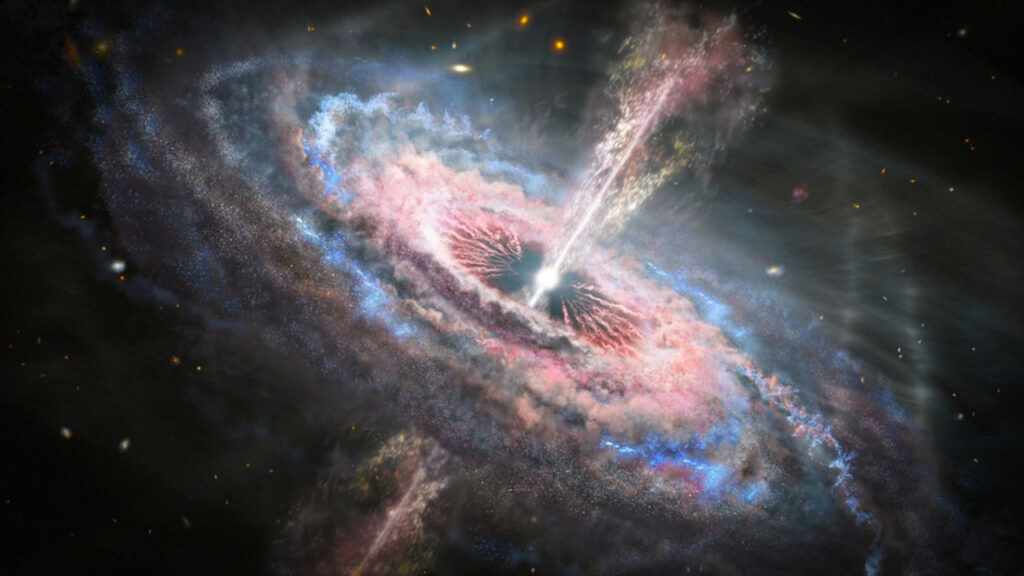NASA looked forward to the launch of the Space James Webb telescope later this year. The telescope will observe all kinds of space phenomena but specifically will focus on studying quasar. A quasar is a supermasive black hole that is very bright and far away, which is millions to billions of times the mass of the sun. Quasar is usually located in galaxy centers and eat material from the disk of the accretion that surrounds it, and releases radiation torrent.
Quasar is one of the brightest objects in the universe. The light they produced more than all the other stars in the joint host galaxy. NASA also said the jet of the wind in the wind created by the form of quasar galaxy around it. Shortly after the Webb Space Telescope was launched, NASA plans to direct the telescope to the last six quasars and bright ones known. Data collected by the telescope that we use to study the quasar properties and their host galaxies to determine how they are interconnected during the first stage of the galaxy evolution in the early universe.
Scientists also plan to use quasar to examine gas in the room between galaxies, especially during a period called cosmic stock, which ends when the universe is still very young. The extreme sensitivity of the telescope against low light and extraordinary corner resolution will be tested to study the phenomenon. Scientists noted that when Webb’s telescope stared far into the universe, it really looked into the past. This is because quasar is so far from us, the light of them began his journey to earth when the universe was still very young, took billions of years to come to see us.
The researchers noted that they would see how they were very long, not like now. All quasars, the team will study in the early universe when it was less than 800 million years old, or less than six percent of his current age. Investigation provides an opportunity to study the evolution of galaxies and the formation of supermassive black holes and evolution from the early days of the universe.

